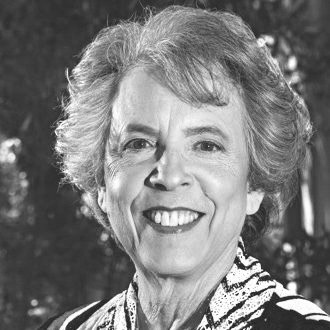It was a good death.
Jacob had finished all that was left to do. He gave his son Joseph explicit instructions about what he wanted when he died: “When I lie down with my ancestors, have me taken out of Egypt and be buried in their burial place.”
He had the chance to meet his grandchildren and bless them after he was reunited with Joseph: “I never expected to see you again,” the old man says to Joseph, “and here, God has let me see your children as well.”
The same man who responded to Pharaoh’s question “How old are you?” with the cynical answer, “The days and years of my sojourn are one hundred and thirty. Few and hard have been the years of my life …” now, 17 years later, at his deathbed, gathers all his sons around him and blesses each one of them with a unique blessing. While I wouldn’t say these blessings are particularly gentle, he does get to say to his (male) children exactly what he wanted to say.
Then he gives even more explicit instructions to all of his sons: “Bury me with my fathers in the cave that lies in the field of Ephron the Hittite in the cave in the field of Machpelah. … There Abraham and his wife Sarah are buried, and so are Isaac and his wife Rebekah, and there, too, I buried Leah — the field and the cave had been purchased from the Hittites.”
And then he dies a peaceful death: “When Jacob had finished commanding his sons, he gathered up his feet into the bed and expired and was gathered to his kinspeople.”
There is no record of any kind of choices that his sons had to make about end-of-life decisions. Jacob is apparently coherent until the last moments. A good death. Would that each of us could be so lucky!
We all know stories of people we love whose final months were characterized by aggressive treatment in intensive care units. For many of them, this would not have been their choice, but they never made their preferences clear to those who might carry them out. And of course, those last months of life are particularly expensive, both for Medicare and for the dying. Many experts argue that multiple and intensive services at the end of life interfere with what could have been a peaceful dying experience.
Why is it so hard for us to do what Jacob seemed to do so effortlessly? He wasn’t afraid to talk with his children about death. He told them exactly how he wanted to be buried. And in addition, he left them a kind of ethical will, a statement about what mattered to him in the form of the blessings he invoked for each of his sons. Why is it so hard for us?
According to a recent study by the California HealthCare Foundation, six out of 10 people say they don’t want to burden their family with end-of-life decisions, but almost as many (56 percent) have not talked about what they want. Research has shown that planning ahead for end-of-life care through advance directives not only reduces family tension but also reduces the cost of end-of-life care.
Jacob knew he was going to die. After all, he was 147 years old. But no matter how old we are, we, too, know we are going to die … someday. The example of Jacob should give us the incentive we need to have these conversations now. And what better place than in our own synagogues, where we can learn what Jewish tradition has to teach us about end-of-life decisions and about the spiritual practices that can help us make meaning out of the time we have left to live, practices like writing an ethical will or becoming part of a wise aging circle.
Several synagogues in Los Angeles are joining together with Cedars-Sinai Medical Center to create a pilot program through which congregants will learn the tools to facilitate these conversations for other members of their congregation with the goal of increasing the numbers of congregants with end-of-life directives. Some synagogues, such as Temple Emanuel (tebh.org/nextstage), have resources available on their websites. Other synagogues have taken part in the Institute for Jewish Spirituality’s Wise Aging program, where lay leaders are being trained to offer ongoing groups within their congregation to reflect on what it means to age with grace.
Now back to our Torah portion. The midrash tells the story that when Jacob (who was also called Israel) was about to die, he called all of his children and told them, “I am afraid that when I die, you will bow down to another god.”
They responded, “Listen Israel, Adonai is our God, only Adonai.”
Relieved and grateful, Jacob whispered, “Baruch shem k’vod malchuto l’olam va-ed! Blessed be the name of God’s glorious kingdom forever and ever.”
And so when we say the Shema in the morning and the evening service, followed by the whispered “Baruch shem …” we are acting out that deathbed scene of children promising their parent that they understood what he taught.
Jacob had a good death. He didn’t leave anything unsaid, including what he wanted to happen around his death. That was a blessing, for him and for his children. If we have those conversations in our own families, it will also be a blessing for our children and for us.
Laura Geller is a senior rabbi of Temple Emanuel of Beverly Hills (tebh.org).























 More news and opinions than at a Shabbat dinner, right in your inbox.
More news and opinions than at a Shabbat dinner, right in your inbox.